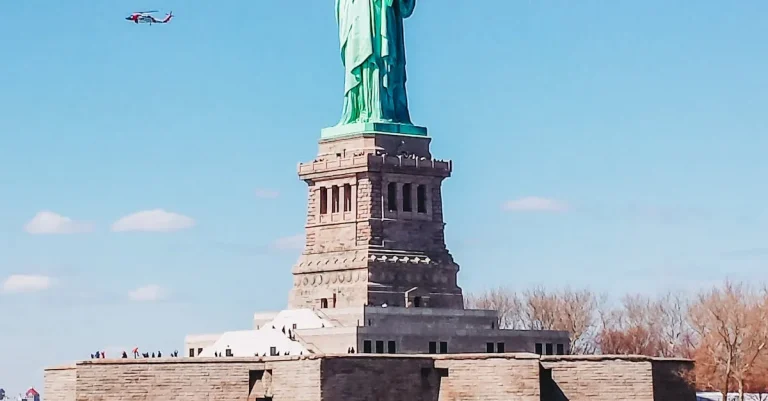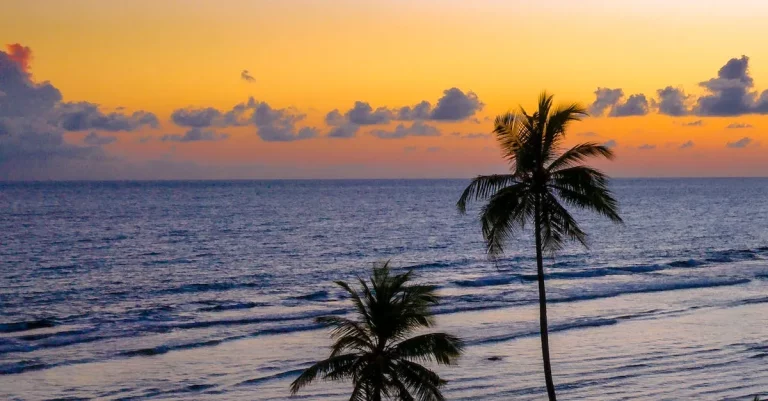List Of Sanctuary Cities In Florida
With immigration being a hot topic in the news, many are wondering exactly where sanctuary cities are located, especially in the battleground state of Florida.
If you’re short on time, here’s a quick answer to your question: There are currently no official sanctuary cities in Florida, as SB 168 banned sanctuary cities in 2019.
In this article, we will take a deep dive into the complex issue of sanctuary cities in Florida. We will provide background on sanctuary cities, explain Florida’s sanctuary city ban, look at attempts by cities to limit cooperation with federal immigration authorities, and provide a list of cities accused of being sanctuary cities despite the state ban.
What are Sanctuary Cities?
Sanctuary cities are municipalities that have adopted policies to limit cooperation with federal immigration enforcement authorities. These policies are typically implemented to protect undocumented immigrants from deportation and to foster trust and cooperation between law enforcement agencies and immigrant communities.
Definition and Background
The concept of sanctuary cities has its roots in the 1980s when churches started providing sanctuary to Central American refugees fleeing violence and persecution. Over time, the term has evolved to include cities that enact policies to provide a safe haven for undocumented immigrants.
In practice, sanctuary cities may refuse to detain undocumented immigrants solely based on their immigration status. They may also limit cooperation with federal immigration authorities, such as refusing to share information or resources unless required by law.
Controversy and Arguments For and Against
The issue of sanctuary cities is highly controversial, with strong arguments on both sides.
Those in favor argue that sanctuary city policies help foster trust and cooperation between local law enforcement and immigrant communities. By not targeting undocumented immigrants for deportation, these cities argue that they can better focus on community safety and crime prevention.
They also argue that these policies prevent the separation of families and protect the rights of individuals who may be fleeing dangerous situations in their home countries.
On the other hand, opponents of sanctuary cities argue that these policies undermine federal immigration laws and jeopardize public safety. They argue that by providing a safe haven for undocumented immigrants, sanctuary cities are shielding criminals from deportation and potentially allowing dangerous individuals to remain in the country.
Critics also argue that these policies create a patchwork of differing immigration enforcement practices across the country, making it difficult for federal authorities to effectively enforce immigration laws.
It is important to note that the term “sanctuary city” does not have a universally accepted definition, and policies can vary greatly between different municipalities. To fully understand the specific policies and practices of sanctuary cities in Florida, it is advisable to refer to official government sources or reputable news outlets for accurate and up-to-date information.
Florida’s Ban on Sanctuary Cities
Florida’s ban on sanctuary cities has been a topic of much debate and controversy in recent years. The state has taken a strong stance against cities and counties that refuse to cooperate with federal immigration authorities.
This article will explore key details of SB 168, the law that prohibits sanctuary cities in Florida, as well as the reactions and effects it has had.
Key Details of SB 168
SB 168, also known as the “Rule of Law Adherence Act,” was signed into law by Governor Ron DeSantis in June 2019. The law requires local law enforcement agencies to cooperate with federal immigration authorities and prohibits any policies or practices that would hinder or impede the enforcement of federal immigration laws.
Under SB 168, local law enforcement officials are required to honor detainer requests from U.S. Immigration and Customs Enforcement (ICE) and cannot restrict or hinder their officers from inquiring about a person’s immigration status during routine interactions, such as traffic stops.
The law also allows for penalties to be imposed on government entities that violate its provisions. These penalties can include fines and removal from office for elected officials who enact policies that obstruct enforcement of federal immigration laws.
Reactions and Effects
The ban on sanctuary cities in Florida has received both praise and criticism from various groups. Supporters argue that the law is necessary to ensure public safety and the enforcement of federal immigration laws.
They believe that sanctuary cities create a safe haven for undocumented immigrants and hinder the ability of law enforcement to effectively combat crime.
Opponents of the law, on the other hand, argue that it is discriminatory and fosters fear and mistrust within immigrant communities. They believe that the law encourages racial profiling and may deter individuals from reporting crimes or seeking medical care out of fear of deportation.
Since the implementation of SB 168, several cities and counties in Florida have faced legal challenges. These challenges have questioned the constitutionality of the law and its potential violation of individuals’ civil rights.
The outcome of these legal battles will likely have a significant impact on the future of Florida’s ban on sanctuary cities.
For more information on Florida’s ban on sanctuary cities, you can visit the official website of the state government at https://www.flgov.com/.
Cities Accused of Sanctuary Policies
Sanctuary cities, defined as municipalities that limit their cooperation with federal immigration enforcement, have become a controversial topic in recent years. While some argue that these policies protect undocumented immigrants and foster trust between law enforcement and immigrant communities, others claim that they pose a threat to public safety and undermine federal immigration laws.
In Florida, several cities have been accused of implementing sanctuary policies, including those in South Florida, Gainesville, and St. Petersburg.
South Florida Cities
South Florida is home to several cities that have been accused of having sanctuary policies in place. Miami, Fort Lauderdale, and West Palm Beach are among the most well-known cities in this region. These cities have faced criticism for their refusal to fully cooperate with federal immigration authorities, particularly when it comes to detaining undocumented immigrants for deportation.
Proponents argue that these policies are necessary to protect the rights of immigrants, while opponents argue that they undermine the rule of law.
Gainesville
Gainesville, located in north-central Florida, has also been accused of implementing sanctuary policies. The city’s police department has been criticized for not honoring immigration detainer requests from Immigration and Customs Enforcement (ICE) without a warrant.
However, city officials have denied that Gainesville is a sanctuary city, stating that they comply with all federal laws and only detain individuals when there is a valid warrant.
St. Petersburg
St. Petersburg, a city on Florida’s Gulf Coast, has also faced accusations of having sanctuary policies. The city has drawn attention for its refusal to hold undocumented immigrants in custody for ICE without a warrant.
However, city officials have stated that they do cooperate with federal immigration authorities and comply with all applicable laws. They argue that their policies are aimed at protecting the rights of all residents, regardless of their immigration status.
It is important to note that the term “sanctuary city” does not have a universally accepted definition, and there is often debate over whether a city truly meets the criteria. The accusations made against these cities should be viewed in the context of the broader immigration debate, where differing opinions and interpretations of the law are common.
Attempts to Limit Cooperation with ICE
Resolutions and Proposals
In an effort to limit cooperation with U.S. Immigration and Customs Enforcement (ICE), several cities in Florida have adopted resolutions or proposed legislation to protect undocumented immigrants. These resolutions aim to create sanctuary cities, where local law enforcement is directed not to cooperate with federal immigration authorities.
One example is the city of Miami, which passed a resolution in 2017 stating that local law enforcement officers would not honor ICE detainer requests unless they are accompanied by a judicial warrant.
This decision was made to protect the rights of immigrants and foster trust between the immigrant community and local law enforcement.
Another city in Florida that has taken steps to limit cooperation with ICE is Orlando. In 2019, the Orlando City Council passed a resolution that prohibits city employees, including law enforcement officers, from asking about a person’s immigration status or participating in immigration enforcement activities.
The resolution also directs city staff to not use city resources to assist ICE in any way.
These resolutions and proposals reflect a growing trend in Florida and across the United States, as local governments seek to protect undocumented immigrants and ensure that their communities remain safe and inclusive for all residents.
Other Local Efforts
In addition to resolutions and proposals, other local efforts have been made in Florida to limit cooperation with ICE. For instance, some counties have adopted policies that limit the use of county resources for immigration enforcement purposes.
One example is Broward County, which implemented a policy in 2019 that prohibits the county jail from honoring ICE detainer requests unless the individual in question has been convicted of a serious crime.
This policy aims to strike a balance between public safety concerns and protecting the rights of undocumented immigrants.
Similarly, Palm Beach County has adopted a policy that restricts the county jail from holding individuals solely based on their immigration status. This policy ensures that individuals are not detained for prolonged periods of time without a valid criminal charge.
These local efforts demonstrate the commitment of certain cities and counties in Florida to create a welcoming environment for immigrants, while also addressing public safety concerns. However, it is worth noting that these policies have faced criticism from those who argue that they undermine federal immigration laws and compromise public safety.
For more information on sanctuary cities and their impact, you can visit the American Immigration Council’s website.
Conclusion
In conclusion, while there are no official sanctuary cities in Florida due to the state ban, some cities have made efforts to limit cooperation with federal immigration enforcement. However, these cities stop short of formal sanctuary policies due to SB 168.
The debate around sanctuary cities remains complex and divisive. Looking ahead, it will be interesting to see if any Florida cities test the boundaries of state law, or if there are any challenges to SB 168.








